Estimated reading time: 5 minutes
Have you spotted any insects in your fruit trees that are making you worry?
In spring we recommend that you visit your fruit trees at least once a week. Take a few minutes to have a really good look at the leaves, flowers, fruit, and bark.
It’s a good way to keep track of the health of your tree and stay ahead of any disease issues that show up.
While you’re there, try to spot any critters in or around the tree, like this fantastic striped fly we found on an apricot tree (above).
Related Articles
6 Steps to Looking After Fruit Fly and Bird Nets
Fruit fly and bird nets are key to your fruit growing success. These 6 simple steps to look after them properly will help them last longer.
Could grasshoppers be eating your fruit?
Grasshoppers can do damage to fruit and to leaves on your fruit trees, but it’s possible to keep them under control with these strategies.
Why you should pick up fruit from the ground
Picking up your fruit from the ground is the first principle of organic orchard hygiene, and one of your best lines of defence against pests.
It doesn’t really matter if you can identify the bug or not. It’s safe to assume that it’s playing an important role in the ecosystem (like pollination, pest control, or acting as a food source for someone else), even if you don’t know what that is.
However, it can be very useful to know what some pest insects look like, such as the dreaded and wide-spread fruit fly.
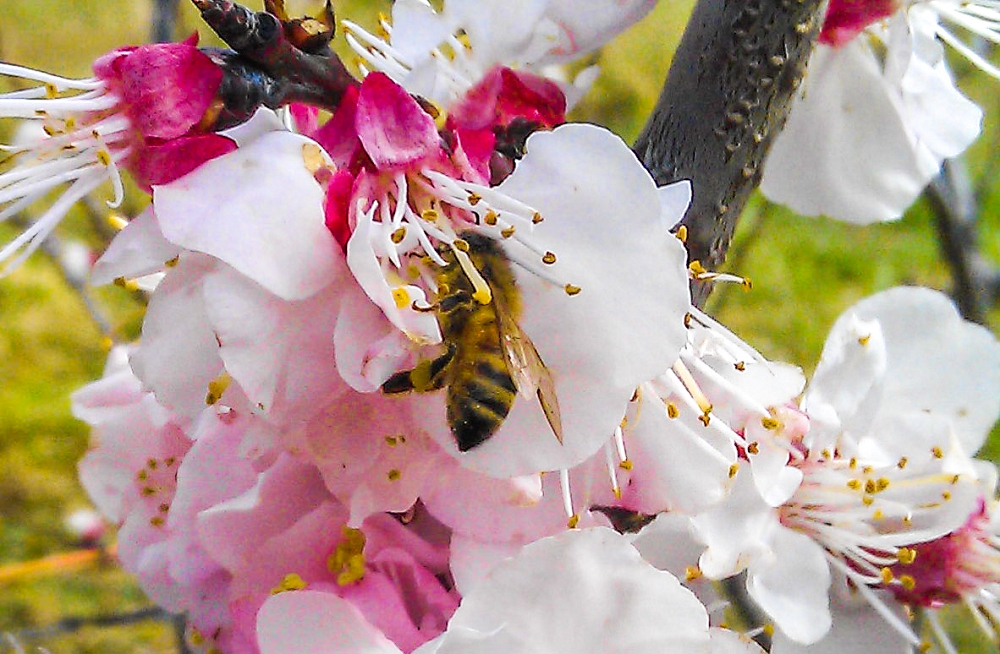
What role are insects playing in your fruit trees?
Many people mistakenly think pollination depends solely on bees. In fact, it’s way more interesting and complex than that!
Many insects play an important role in pollination. Understanding how pollination works will definitely help with choosing what to plant, and the overall development of your garden.
It’s absolutely fascinating trying to figure out what sort of bugs you’ve got, and there are some great online resources these days to help, like the CSIRO website. There are also some fantastic apps available, just check out the app store on your smartphone for these.
However, identification is much less important than the fact that you have lots of biodiversity in your garden. In short, the more different types of bugs you can count, the healthier your garden is.
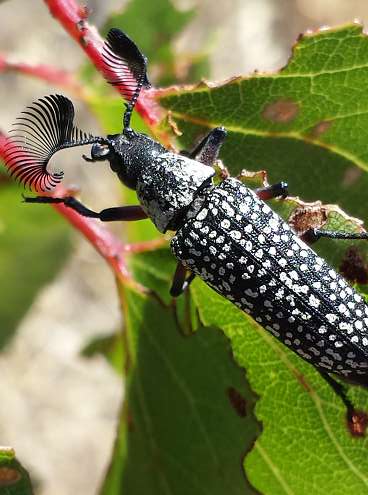
Why is biodiversity so important?
We often get questions from people who have noticed bugs or insects on their fruit or trees, and are wondering if they should get rid of them, and if so how?
That’s not our approach at all!
In a healthy, biodiverse system there should be literally thousands of different types of insects around. They all play a part in an incredibly complex system that will generally keep itself in balance. The key is not to interfere with it.
Unless you’re an insect specialist, there’s little chance that you can identify them all or even understand whether they’re a “pest” or a “predator”. In fact, many are both.
For example, earwigs are a dratted nuisance in apricot and cherry trees, but a useful predator eating up millions of aphids in apple trees.
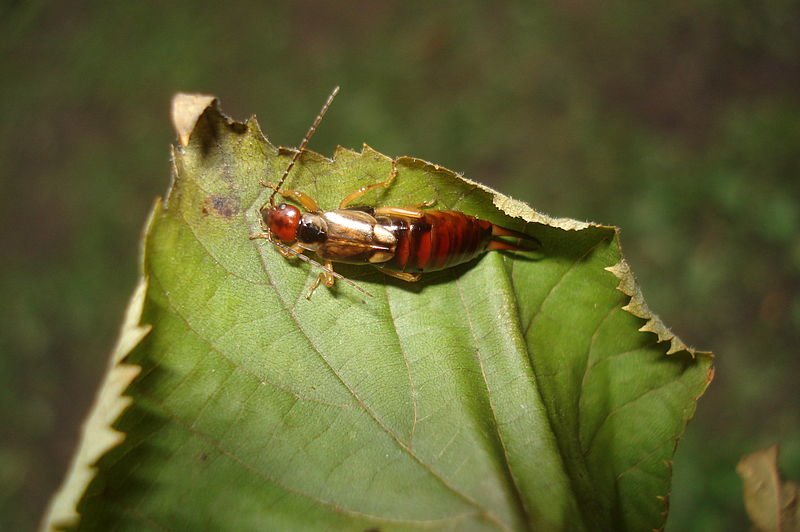
The targeted intervention approach
At Grow Great Fruit, we take a different approach.
Rather than focusing on the insects themselves, we focus on protecting our fruit and our fruit trees from damage.
How do we do this without aiming to kill all the pests?
The methodology we use is to understand their life cycle. Then we look for vulnerabilities where small, relatively easy physical interventions will prevent damage to your precious fruit.
Over many years of growing fruit organically we’ve worked out the easiest and most effective solutions for most common fruit tree pests.
We gave up years ago trying to get rid of the bugs. It’s usually impossible, frustrating, and expensive. The targeted intervention method is much more effective. It’s also much kinder to the environment and the natural world.
So when you’re doing weekly inspections of your fruit trees, look for bugs. Also look for damage to the fruit and the trees, because that’s what will guide you as to the appropriate prevention techniques.
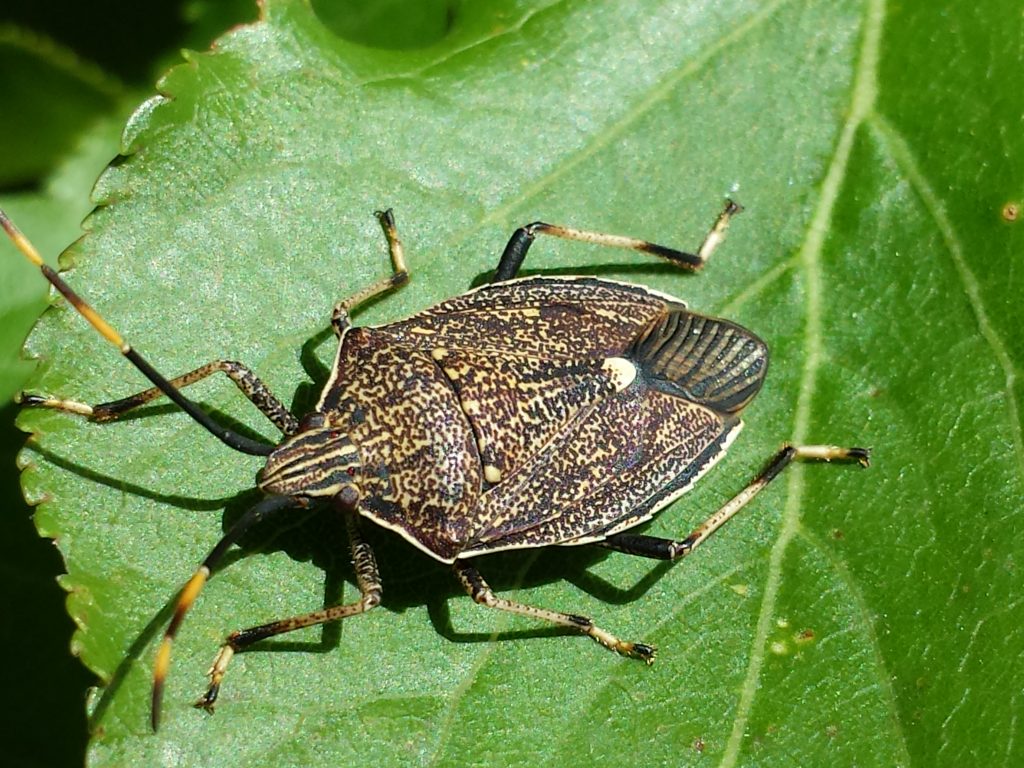
Related Articles
6 Steps to Looking After Fruit Fly and Bird Nets
Fruit fly and bird nets are key to your fruit growing success. These 6 simple steps to look after them properly will help them last longer.
Could grasshoppers be eating your fruit?
Grasshoppers can do damage to fruit and to leaves on your fruit trees, but it’s possible to keep them under control with these strategies.
Why you should pick up fruit from the ground
Picking up your fruit from the ground is the first principle of organic orchard hygiene, and one of your best lines of defence against pests.
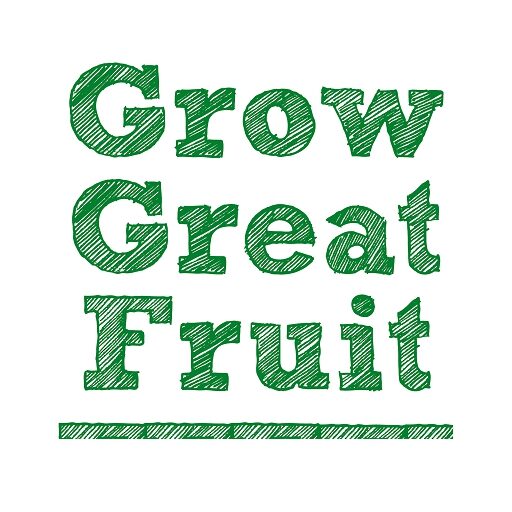
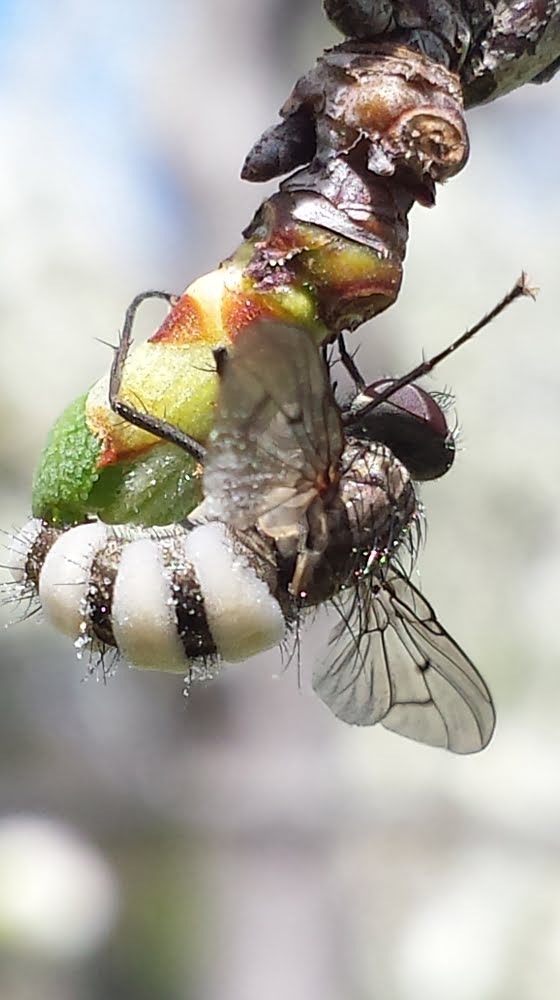
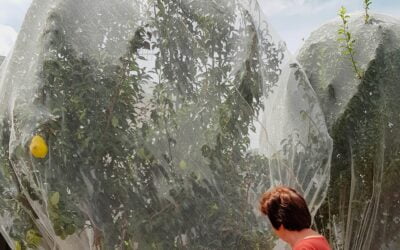

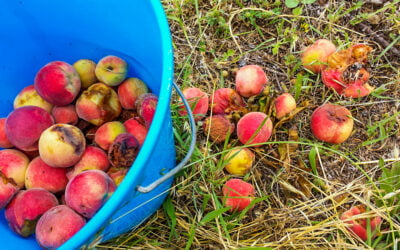
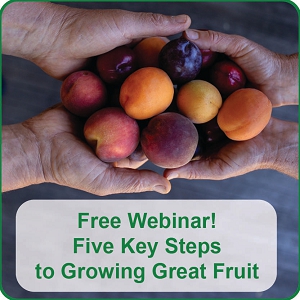
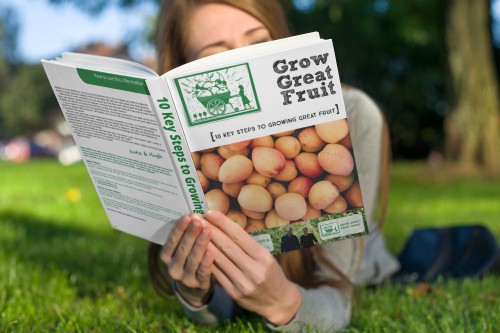
Thankyou for your constant sharing…
Much appreciated – apart from fruit fly
(Live in mid north coast at Port stephens 🙂
No need to give advice – just wanted to acknowledge
Best wishes
Philippa
Hi Philippa, thanks for getting in touch, and it’s great you’re finding the information useful. Sorry to hear about the fruit fly – they are definitely one of the worst of the pests to contend with. Good luck for the coming season.
Hi, have just found out you can get fruit fly net “sleeves” to pull over individual branches from our local Mount Alexander Hardware…time to get out there and protect from that insect….
Thanks Chris for info on branch sleeves.